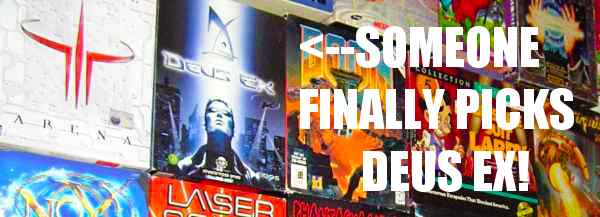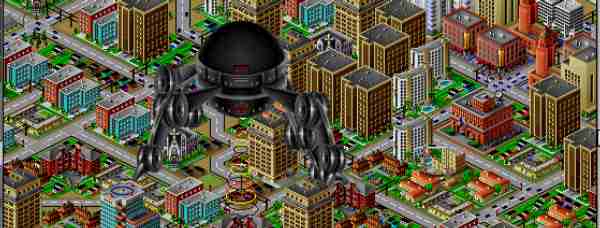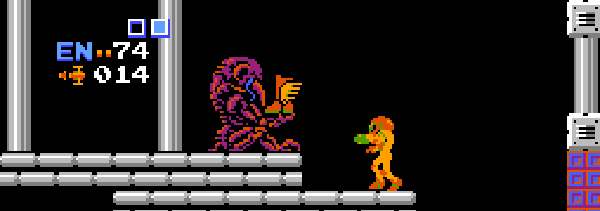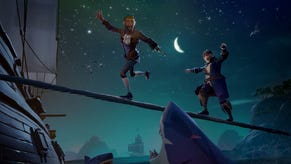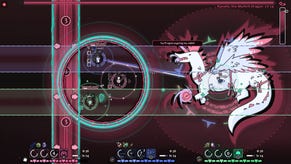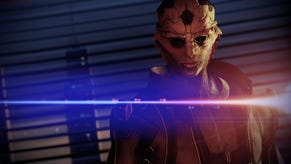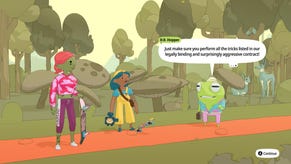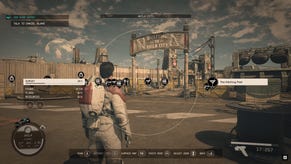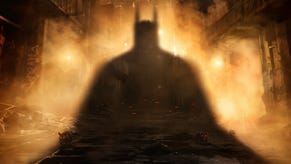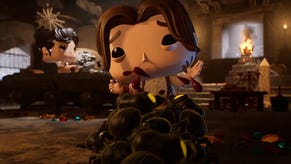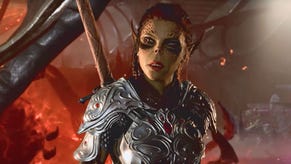Gaming Made Me: The Return Of The Panel
It's been emotional. Now, over a week of frenzied nostalgia later, Gaming Made Me draws to a close with a final round-up of Developers and Journalists. From the former, Ed Stern, Brian Mitsoda, Annie Carlson, Dan Marshall and Simon Parkin. From the latter, LewieP and Simon Parkin. Oh no! Simon's dual-classed, the powergaming twink. Recollections... go!

Ed Stern (Splash Damage Designer)
No shortage of games I loved and learned (Blood, Close Combat, Harpoon Classic, Half-Life, Deus Ex etc.) but I was already a gamer by then. First I had to form my game-gland.
ClickyPewPew:
Mattel BattleStar Galactica handheld I was agog at the mere existence of a three position thumb switch, let alone one that controlled a shootything. The first three cylons always came in the same pattern. Thereafter, stochastic sweaty-palmed thrills. On the back, in big red letters "IF GAME MALFUNCTIONS, TRY A FRESH BATTERY". Brilliantly, as the battery wore out, the bleeps would slow to quavering bleats. Pewwwwwwwwwwppppppppeewwwwwwwwww
SquidgyHaste: Mario Bros. Game and Watch
Teeny tiny LCD fratelli Mario and Luigi, bottling factory, Game and Watch played and watched in mounting ecstasy by gap-jawed schoolchums queueing by real (milk)bottle crates to drop virtual ones. I was crushed when someone else got Donky Kong. "Poor Mario and Luigi", I thought "Ah well, that's the last we'll hear of them". Later someone tried to persuade me that the little man from this game was the same little man in Donkey Kong. What kind of idiot did he think I was?
Hex Crimes: D&D, Expert D&D, Advanced D&D, RuneQuest, Traveller
During a particularly impenetrable maths lesson, I laboriously inked a sheet of graph paper into a maze. A classmate suggested it could be used to play an RPG. Pitying him as a simpleton and buffoon, I patiently explained that I didn't have my D&D dice or reference tomes with me, so that was impossible. "But couldn't you make a combat system using coin tosses or something?" I fled shrieking at the Throbbing Wrongness of it all. Make a game? That bordered on the obscene. Games were, axiomatically, by definition, things bought and read and played, not made. Some abysses are not meant to be stared into. Best back away.
Hop, Shoot - Waaaaah!: Rick Dangerous
Remorselessly unforgiving Core 2D platform/pit-trap-fest. Inevitability of pseudonymous hero's demise leavened by comic coolness of death noise. Mortality. Gravity. Sharp sticks. What's not to love? HAVING TO START AGAIN FROM THE BEGINNING EVERY FUCKING TIME, THAT'S WHAT.
PointyBang: Wolfenstein 3D, Doom, Quake
Played on a raging fast Uni IT lab 486 pc. Entire academic years sacrificed at the altar of id-tastic FPSs. The first time I ever found myself trying to look around the edge of a monitor (the next being Alien Vs. Predator). There's a part of me that still feels that using a mouse and not the Page Up/Page Down/Cursor Arrow keys is just cheating. And no, they don't let me touch interface design, how did you guess?

Dan Marshall (ZombieCow)
Flashback (Delphine)
I have a very distinct memory of playing Flashback one long, hot summer. Every bone in my body was telling me I should be outside, basking in the sunshine, throwing water bombs and eating burned stuff off a barbeque. But I couldn’t, because Flashback wouldn’t let me go. It was a combination of the animation, the story and the effortless sense of cool it gave you, the player. Waiting for a grunt to walk past, dropping down behind him, whipping out your pistol in one seamless move and plugging him in the back. Not even Bond was this smooth.
Sonic the Hedgehog (Sonic Team)
This is how games should be. This is how all games should be. Mad, vibrant, fast, slow, endlessly cheery, gloriously simple and… words aren’t necessary here. You all remember.
Syndicate (Bullfrog)
Aaaah Colorado. Never been there, but if it isn’t awash with citizens and a visiting dignitary to assassinate I’ll be bitterly disappointed. Syndicate was insane – one of the few games I’ve meticulously planned a mission, staked out the target and executed it perfectly until it went balls up and I had to run away. Dinky but violent, it’s an outrageously simple concept layered atop a complex underbelly of gaming deliciousness. When I played it, I didn’t have a soundcard so sat through it in silence… and it’s still in my Top Five Games Ever, which just goes to show how strong the other cornerstones are.
Sam and Max: Hit the Road (Lucasarts)
There’s always a point, when playing a game that you’ve paid for with pocket money, where you realise you’re about to get to the end, and slow down. It’s a horrible, gut-wrenching feeling – is this it, already? So it was with Sam and Max, primarily because it was so very impossible to stop playing I blitzed through it in double-quick time. Beautifully written, excellently paced, with a bar-setting bunch of puzzles and the perfect interface. Others say Day of the Tentacle or Monkey Island – for me, this is the pinnacle of adventure gaming. Although admittedly Grim Fandango had a more tactile CD sleeve, which I think helps a lot.
Brian Mitsoda (Ex-Obsidian, Ex-Troika)
Separating the games that mattered most from all the others was difficult because as my awareness of self developed, I have always been obsessed with thoughts about games and playing games. From the terrible ones that made me really appreciate the good ones, to the best ones that made me want to exclaim to non-gamers that they don’t understand the beauty of high points that only games can deliver, I’ve consumed so many and continue to be consumed by games. These are the ones that immediately came to mind as milestones in my gaming life – a lot of them were massive and seem kind of obvious, but they are events that I was caught up in and experienced, unlike baby boomers who enjoy the greatest hits of the Sixties even though they were never actually part of the counterculture and the closest they came to seeing Woodstock was catching Sha Na Na at a New Jersey mall in 1978. But to quote Mr. James Murphy, I Was There for:
Pac-Man (Namco)
It’s impossible to separate my childhood from Pac-Man. If you were alive in the early 80s, you knew who Pac-Man was and like it or not, you were surrounded by Pac-Man. It’s the first game I remember being ubiquitous to the point that over a decade later, bars and restaurants still had their Pac-Man cabinets or tables neglected in a corner somewhere. Not only could the game be found everywhere, but so could the Pac-merchandise – stickers, sheets, cereal, Christmas ornaments, t-shirts, novelty songs, defibrillators – to the point that even someone who couldn’t tell a videogame machine from a digital clock perched atop a brick knew who Pac-Man was. Luckily, the game was fantastic – no, it was glorious – a thing that was unexplainable and unrelated to the natural world, simple enough to make sense to anyone who studied it for a few seconds but addictive enough to keep people glued to it for hours, even lifetimes for some. To this day, I find it incredible that some people’s entire gaming career consists of Pac-Man, maybe Galaga or Tetris. As a kid, I wasn’t very good at it, and I couldn’t put a finger on just what made me so fond of it, but I just wanted to play it. I was in awe of people who could last more than ten minutes and who had eaten more than mere strawberries and cherries and I probably bugged the shit out of a fair share while trying to watch them play.
One of my fondest and worst memories of childhood is the day my father surprised me with a copy of Pac-Man for the Atari 2600. Imagine the sheer joy I experienced as I opened the yellow cardboard box, realizing that I would be able to play my favorite arcade game all the time, whenever I wanted, as much as I wanted and then take that childhood high point and drop it head first onto a jagged heap of coral rock above a tepid pool of piss and mildly-venomous animals. Goddamn that port blew! At least, it taught me a valuable lesson about being an informed consumer. But I continue to love Pac-Man, even if I’m still not that good at it.
Street Fighter 2 (Capcom)
The first Street Fighter was kind of a novelty – I mean, the early cabinets consisted of giant buttons you mashed until your character did something, and this was if the cabinet was still functioning correctly. But a few years later, I happened to read about Street Fighter 2 in a gaming magazine and it sounded like a bigger deal. A couple of months later, I encountered it at a bowling alley and got to play it for the first time. It didn’t immediately click because I didn’t understand how to do all the moves or the purpose of each attack, but it was intriguing. Flash forward a few months later and my local arcade has it. There’s an all-ages group collected around the machine as two experienced fighters are throwing down and it quickly becomes the Ali Vs. Fraser of my generation, over and over, for participant and audience. Thanks to some encouragement and help from a kind pro, I learned how to play Blanka that day. Then I went out and bought every magazine with Street Fighter 2 info and I studied it, practicing the controller movements on my old NES Advantage. Next I learned Ryu, then Guile, then the rest. Over the course of a few years, through multiple iterations, I played the hell out of the game. I must’ve spent three or four days a week after school challenging people at the local arcade. I was never the top player, but I did well enough to hold the machine once in awhile. I bought the SNES versions of SF2 and SF2: Turbo on day one and wasted far too many college hours trying to squeeze in one more match with anyone who was willing to play. It’s one of those games that is, years later, still just as fun to pick up and play with people, if they haven’t played in tournaments. I’d consider Street Fighter 2 the arcade’s swan song, and I’d be hard-pressed to name a game that was as ubiquitous as Pac-Man or Street Fighter 2.
Fallout (Black Isle)
So, Fallout wasn’t a revolution or the most popular game ever when it was released, but it had a profound impact on me, as it directly contributed to my career in the game industry. It’s not the first RPG I played by any stretch, but it was the first one that made the main character feel like a normal person rather than the activation switch in a predestined, very linear path. Not only was it wide open as far as play-styles went, but it was stunningly written with people over the age of twelve in mind. The combination of lax narrative and open world design made me reconsider a career in movies or TV and made me think gaming was going to be where it was at as far as developing new ways of creating and experiencing story.
At the time of its release, I was working on the fringe of the movie industry in Los Angeles. Looking up Interplay, I found out it was close enough (Orange County) to give it a shot, and they were hiring for testers at the time. I applied, got the job, and was on my way to becoming a designer of many cancelled titles and one that actually got out – well enough received for you to be reading this today, how ‘bout that? Perhaps if not for Fallout, I would have never thought my love of games, design, and writing could be combined and instead I’d be getting into the head of the Monopoly thimble, trying to figure out its motivation in the script while attempting to drink myself to death.
LewieP (Savygamer)
SimCity 2000 (Maxis)
I must have been about 7/8 years old when I first played SimCity 2000. My Mum worked for a local Council at the time, and was given a computer to do word processing on. We'd had an Amiga 1200 for a few years, but for some reason this mid range windows 3.1 system felt far more exotic and exciting to me.
I'd seen a friend play the original SimCity once, and was enthralled by the idea of running my own city. My mum borrowed a copy of SimCity 2000 from a friend, and copied that floppy (I had no idea at the time that you could even buy games, my parents were filthy pirates back then, I have since bought it). We just about managed to install it, although messed it up somehow and it wouldn't run directly from Windows, you had to exit to dos, and type it's shortcut in from there. I memorised how to do so pretty quickly.
Before I had actually played Sim City 2000, I had no real concept of budget or planning. On my first go I just made as much residential zone as possible, because I wanted a big population. Needless to say, my first experiment was a massive failure.
So I tried again.
I experimented with different zones, balancing commercial, industrial and residential. I built roads, I made power stations, water supply, police and fire services, and managed to cobble together a decent small city, which happily ticked along making a meagre amount of money for me.
That wasn't enough.
I then spent a pretty long time trying to 'solve' the games mechanics. I realised that buildings would only get built in a zone if there was a road 3 squares away from it, or closer, so I made long strips of residential, commercial and industrial zones 6 squares wide, surrounded by road. This made things organised, but more importantly, efficient. Maximum use of the land with smallest amount of roads.
I also realised that although certain power stations gave off a lot of energy, most of them needed to be replaced every so often, at pretty significant cost. The hydroelectric damns and wind turbines, however, last forever. Since I was in it for the long haul, these would be really cost effective in the long run.
Then I delved into the games deeper mechanics. Manipulating the tax system for maximum profit, building airports and ports for transport, and eventually building mysterious Arcologies.
Then I quit the game, and started again, applying everything I had learnt, to build a new city. A better city.
SimCity 2000 instilled a few qualities in me which I know massively shaped me in my child and then adult life. I learnt the value of 'gaming a system', working out the underlying rules, and manipulating and pushing them for maximum personal benefit. I also gained an understanding of the value of iterative learning. I knew after my first failed attempt of creating a huge sprawling metropolis that I could do better next time. And I did.
More impressively, looking back at it, I learnt all this stuff just off the game. My parents knew as little as me about the game at first, but after a few weeks I was able to teach them how to play better. A piece of software didn't just contain things I could learn, it taught them to me in a fun and engaging way.
Pokémon (Game Freak, Creatures Inc)
The particular Pokémon in question was Yellow, but it really could have been any of them.
It all started when I went on a family holiday to Florida, and completely by chance the holiday coincided with the release of Pokémon Yellow. At the time, none of my school friends had got into Pokémon yet, but I could tell that it was going to be pretty big. I played a bit of Pokémon yellow on a demo pod in a Wall Mart, whilst my parents did the food shopping, and I was hooked. I used some of my holiday money to buy myself a copy.
In the months after my return from Florida, I played a hell of a lot of Pokémon. I must have racked up over a hundred hours of playtime, and had a wide range of pokémon that I had trained with specific battle strategies in mind.
At this point, my peers at school started getting into the game too, although all those losers had to get blue and red because the special edition Yellow wasn't out in the UK yet. Since I'd had the game for a fair bit longer than anyone else, lots of people turned to me for advice about the game, techniques for defeating specific gym leaders, ideas for good pokémon to fill strategic gaps in their squad, or just places to catch cool pokémon. For the first time in my life, my peers were looking up to me for my prowess at a video game. I even remember one kid named his in game rival after me.
Then we got link cables.
This created my first proper gaming community. It wasn't connected via the internet, it was connected by 50cm wires which we carried with us.
There were opportunities for trading, completing your pokédex (the encyclopaedia of all the pokémon), and more importantly, battling.
Never before had I played any video game that nurtured a persistent competitive environment, and never since have I found one that does so at such a personal level. You weren't just battling another player, you were battling for kudos and respect from your peers.
Deus Ex (Ion Storm Austin)
The funny thing about Deus Ex is that it is one of my most replayed games, and no matter what I do every replay boils down to this process:
1. Spend about 15 minutes planning exactly how I am going to play the game, in a completely different way to how I have played it before, using different equipment, different augmentations, and upgrading different skills.
2. Encounter the first enemy.
3. Throw out the new plan, and revert to playing it exactly the same way I always play it.
I go for a generally stealthy strategy, and use non-lethal takedowns when forced to. I only kill people when it comes down to me or them, or they have done something to cross me, then all bets are off. I love the crossbow with TRQ darts, finding somewhere safe, and taking out guys before they can see me. The Baton and Riot Prod when I can get closer.
Interestingly, I didn't even like it when I first played it. I died too much, ran out of ammo too often, and skipped all of the boring dialogue. I didn't even make it to the end of the first mission. Coming off the roller coaster ride of Half Life, Deus Ex didn't match up to what I had wanted from an FPS. I was young and naive.
I left it alone for a few years, I matured a bit, and then came back to it in a Summer gaming drought.
The game hadn't changed, but I had.
I then understood the significance of what was being said in the dialogue far more than I had before, and the moral grey areas that the game thrusts you into.
I saw the solutions that the environments offered for solving challenges. More than anything else, the levels are designed so that you feel like you are subverting them. There are so many kickass things that it simply feels you should not be allowed to do. Hacking into an ATM and stealing all the cash, hacking into CCTV systems to let you slip into areas you should be allowed to get into, making hostile robots do your fighting for you. It's a toy box of naughty things to do to achieve a set goal.
I had empathy for images generated on a computer screen, and was morally compelled to do 'the right thing'. The beauty of it is that the game even forces you to question your idea of what 'the right thing' is. For me, it massively evolved throughout my first playthrough. At first I was happy to kill badies because A) the game told me to, and B) they were terrorists. That perspective is simply not good enough for Deus Ex, and it forces you to have a more mature understanding of the themes and topics present in the game.
It's a bloody good game, I am reinstalling it right now. And so are you.
Annie Carlson (Ex-Obsidian)
This list could probably be 20 pages long if I let it – gaming was the salvation of my young life, and though now I am a jaded lass and view even games I adore with a kind of balanced, game designer reserve, I still recall when I loved games I played whole and without reservation. There are plenty that had their share of molding me into the peculiar humanoid that I am today, but boiled down to a stock, these three titles (two of them groups, because I am shifty like that) stand out:
Metroid (Nintendo R&D1)
Is it any wonder? Do I need to explain this one at all? This is one of the must no-duh additions to any gaming list, it’s like adding Casablanca or Citizen Kane to the Top 50 Movies of All Time list. Way to pick the low-hanging fruit, dude.
I should also add that in addition to this game being awesome for reasons that everybody already knows, this was a pivotal game for me when I was eight. With the exception of maybe two or three titles, every game I’d picked up only featured women as the people needing the saving. That day - when my older brother met me after school, breathless with excitement, and said someone told him about a special code for the game - changed my perception forever. JUSTIN BAILEY was entered, and it was revealed that the most awesome, most badass character I’d ever played was not a guy, but a woman: that was one of the greatest moments in my young gaming life. In my memory I raised my fist silently in the air in triumph at this revelation.
King’s Quest (Sierra)
To hell with Mavis Beacon Teaches Typing – no game ever taught me how to type better and faster than the frantic commands THROW DAGGER AT DRAGON or CLIMB INTO BUCKET. My parents prized this game for how it actually made my brother and I cooperate without yelling at each other and murdering for spite (I’m looking at you, Contra’s waterfall levels), and I prized it for its multiple puzzle solutions and how it managed to make the clunkiness of CGA into a glorious palette of color.
In addition to the first title, the 5th and 6th iterations of the series became the games of choice when I visited my cousins, and we developed our own style for playing it. One person was the actual controller, who sat at the computer and worked the mouse; one was the chronicler, keeping careful track of notes and sketching out maps in careful, graph-paper detail; and the last was the scrutinizer, who offered secondary opinions and pointed out items that the others might have missed. This three-part harmony of playing adventure games is something we oft repeated, so much so that playing those games without at least one other person makes me feel something is missed in the experience. Odd that what is pretty much perceived as a single-player experience made me feel the importance of social gaming so strongly.
The Dig (Lucasarts)
I’m full with a deep joy that this title is coming out on Steam again, thanks to a very clever decision by LucasArts, as this was the title that reminded me, at age 16, why I loved games so damn much. When my computer was sinking into “piece of crap” territory and I couldn’t afford a Playstation, it was this birthday present from my parents that changed my life. It isn’t the very best of the adventure titles that LucasArts released, but something about the story, the richly-drawn landscape of Cocytus, and the beautiful eeriness of Michael Land’s music grabbed and squeezed my heart. It took hold of my ears and bellowed in my face THIS IS YOUR DESTINY, and installed permanently into my brain the knowledge that games would forever be a part of my life. Which, you know, I’m pretty darn okay with.
Simon Parkin (Littleloud/Journalist)
Your mind races to the games that you’d be proud to have made you: a revisionist history that cherry picks classics from the tree of critical consensus.
So I am Defender and Yoshi’s Island and Ocarina of Time and Symphony of the Night and Ico and Portal and all the games that top the all-time best lists; an impeccable pedigree.
But in truth you don’t get to choose the games that make you. Rather, these are the ones that time and circumstance pair you with. You don’t get to pick your DNA.
So really, I am an import copy of Smash Court Tennis 2 on the PlayStation, a game that my brother and I spent one summer playing, perched on the end of my bed in a kick-ass super-deformed doubles team, having the best time of our lives.
I am Castle of Illusion on the Megadrive, a game that I played for four hours straight one Christmas till my parents gently led me downstairs to have a break by, um, watching some TV instead. I am Centipede on the Atari XE, the insect twitch terror distracting me from any sense of not being cool or rich enough to have an ST. I am Tetris on the Gameboy, which made my 12-year-old brain spasm with joy, in much the same way it does today. I am Goldeneye on the N64 because that’s all we did for one year of university, sleeping the day, waking in the evening to laugh at the guy lumbered with the klobb.
I am the first hour of Final Fantasy VII, which I played through with my dad a few months before he left, trying desperately to get him to see what I was seeing, and catching him catching a glimpse of it. I am Dance Dance Revolution because that’s the first game I wanted to get really good at, just to see if I could. And I could.
I am Disney Think Fast on the Wii, because that’sthe game currently making my daughter and it makes her happier than anything else about this hobby, and in her joy I catch the reflection of why I do what I do.
Some of these games are good, some of them are not. That’s kind of the point of the things that make you.
Thanks to all our panel, and everyone who contributed to Gaming Made Me for their time. The opening photo is of Tomer Gabel's collection, used under a Creative Commons licence.
